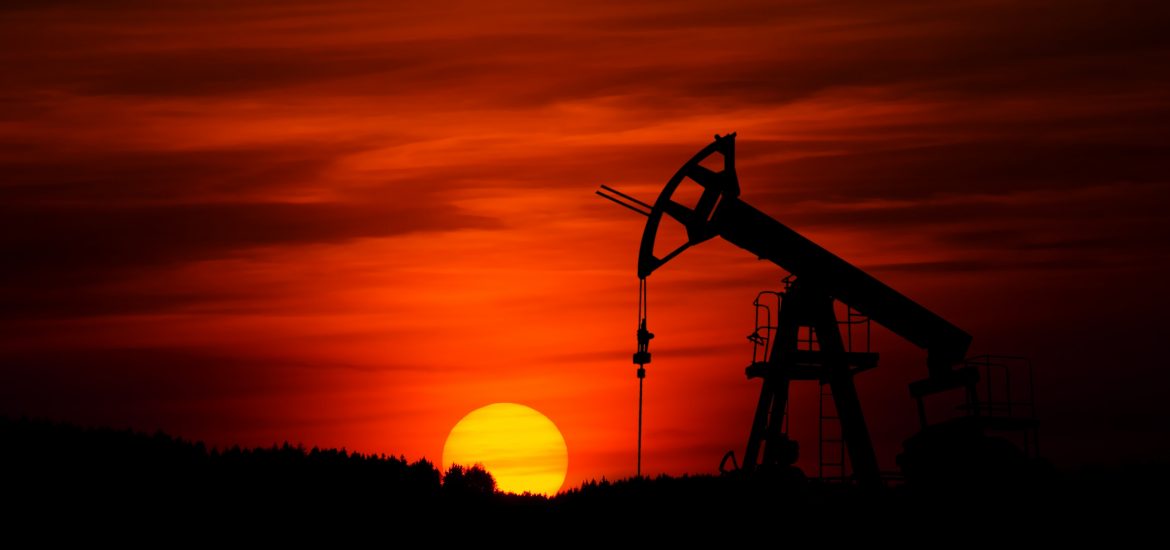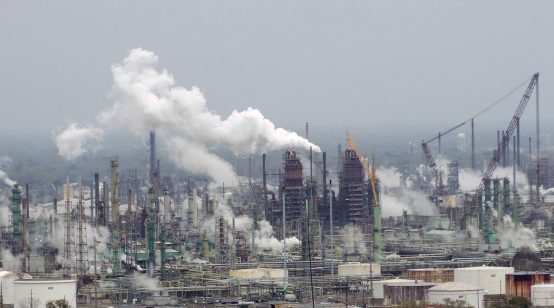
“In his keynote address [to the American Petroleum Institute in 1941], [Henry Luce, founder of Life Magazine and the term the “American Century”] heralded oilmen as the vanguards of pure American values, praising their ‘dynamic spirit of freedom and enterprise’ and ‘sense of illimitable roundness of the world’. When harnessed by God-fearing patriots, he intimated, oil had the capacity to transform the world into something godlier and better. America’s special blessing was, in his mind, also its peculiar burden, the source of its prophetic mission.”
Darren Dochuk, Anointed with Oil, p. 11
Oil is like manna from heaven for the individuals to whom it brings fabulous riches and the states that gain geopolitical and economic strength. It is only natural, then, that societies who have oil believe that they have been blessed from above.
 This ethos is laid plain in a fascinating new book about America’s connections with oil, religion, and history itself: Darren Dochuk’s Anointed with Oil: How Christianity and Crude Made Modern America (Basic Books, 2019). These connections are not ephemeral or imaginary – they concretely shaped the way Americans acted both at home and abroad. Dochuk, a historian at Notre Dame University, spent eight years producing what he calls a “religious biography of a natural resource with outsized—and seemingly otherworldly—importance” (p. 9).
This ethos is laid plain in a fascinating new book about America’s connections with oil, religion, and history itself: Darren Dochuk’s Anointed with Oil: How Christianity and Crude Made Modern America (Basic Books, 2019). These connections are not ephemeral or imaginary – they concretely shaped the way Americans acted both at home and abroad. Dochuk, a historian at Notre Dame University, spent eight years producing what he calls a “religious biography of a natural resource with outsized—and seemingly otherworldly—importance” (p. 9).
Over 560 pages, Dochuk describes how the Christianity-oil synthesis developed along two tracks. The first was “wildcat Christianity,” captured by the individuals who staked their fortunes and faith in Christ to find black gold in rural areas of the fast-growing country. The second was “the civil religion of crude” articulated by the major companies who sought to control the industry’s excesses through “a bureaucratic outlook in keeping with the Protestant ethic Max Weber would famously write about” (p 12).
Anointed with Oil is a must-read for historians of the United States, and can inspire scholars and journalists in other countries to examine how oil helps nations and people construct meaning and policy. By focusing on Christianity’s relationship to oil, Dochuk unearths elements that diplomatic and economic historians have partly ignored or not yet combined. The book will also help non-specialists better understand the self-confident rise of the United States, its willingness to use oil coercively abroad, and its reluctance to embrace non-oil alternatives in the face of climate change.
The individual vs. the corporation
Dochuk’s story unfolds in four parts. The first details early exploration in Appalachia, California, and Texas in the decades following the American Civil War. The application of modern drilling techniques in 1859 had already created a frenzy around oil, but Dochuk shows how crude came of age in a postwar nation that was redefining itself. The boom-bust nature of the early industry nurtured wildcat Christianity, in which individuals cast their luck and fortunes into God’s hands, naturally strengthening the religion’s appeal among oilmen. Rockefeller and the Standard Oil Company, however, asserted dominance over this early craze by harnessing Christianity’s underlying creed of striving to create a better world. “With Standard’s ascent came confirmation that a second stage of capitalist development had consumed the oil business, one geared to the prescriptions of a rational, Calvinistic Protestantism that privileged coordination and control over willful acceptance of risk” (p. 61).
The second part describes the backlash to Standard, which occurred during America’s progressive era in the early twentieth century. The dissolution of its monopoly, the rise of labor, and the realization that oil was central to American power, both in winning the First World War and creating massive commercial opportunities abroad in the 1920s and 1930s, redefined class, nationalism, and opportunity in American society. Once again, the civil religion of crude won out, as American business leaders “portrayed unionists as communist and un-American” (p. 195). Standard’s break up, ironically, permitted it to thrive in the international arena, which required the application of significant capital alongside a proselytizing vision for America in the world.
My only critique of the first two parts is that Dochuk does not discuss Latin America. Mexico and Venezuela started producing in 1901 and 1917, respectively, thanks to U.S. and British companies. Given the common creed with its Catholic neighbors, one wonders about how the oil-Christianity synthesis played out there during the first three decades of the twentieth century.
Missionaries and oil
Dochuk opens the third part by identifying how America’s Christian vision for the world melded with its most important foreign oil concession in Saudi Arabia. “In the years following the Roosevelt-Ibn Saud rendezvous [in 1945]…the reality of a new epoch in international oil production settled in. For operatives tied to major oil and to Washington and the Rockefeller vision of liberal democracy and international cooperation, expectations prevailed that this new stage in global development would lead to universal prosperity and peace” (p. 275).
Dochuk’s narrative also describes America’s early roots in the Middle East and the role of the so-called Arabists, the sons of former missionaries who shaped early Cold War policy and were more sympathetic to Arab states than Israel in the 1940s and 1950s. Dochuk squares this circle by describing how the Arabists saw crude oil as a way to rebuild the region. Concretely, missionaries supported early American oilmen with hospitals, schools, and logistics in Iraq, Iran, and Saudi Arabia, creating new terrain for America’s crude dreams (p. 276-94). As U.S. policy favored Israel in the 1960s, the holy land also became a natural draw for wildcat Christians, despite its dim prospects for major discoveries (p. 341-3, 433-4).
The fourth part examines the decline of the American Century from the 1960s to the 1980s. It is the least developed section, partly due to the lack of archival resources, but also due to the story. In the 1970s, America lost its dominance over global production, making oil a source of anxiety rather than triumph. Dochuk’s epilogue is also somewhat disappointing because it repeats the narrative of decline and fails to discuss how surging U.S. oil and gas production since 2008 has reinvigorated American confidence, as well as its economy. Trump, for instance, embodies the civil religion of crude with freedom gas, the latest iteration of its application. This story is currently being written.
More than a commodity
Anointed with Oil is a uniquely American story: a resource-rich country coupled with a powerful strain of Christianity rises from a City on a Hill to a global hegemon. Similar stories, with obviously different cultural settings, could be told of oil’s manna-like qualities merging with Islam in Gulf countries or Orthodox Christianity in Russia.
Yet oil is not manna for everyone. Those living in oil-rich countries, who do not share in its wealth and are oppressed by authoritarians, as well as development economists sometimes view oil as a curse. In the last decade, scholars have been increasingly recognizing the socio-cultural connections that societies create with oil, partly out of an interest in trying to understand the deeper roots of our global addiction to fossil fuels. Of these works, Leif Wenar’s Blood Oil: Tyrants, Violence, and the Rules that Run the World was noteworthy. In a similar vein, my colleagues and I at Kadir Has University’s Center for Energy and Sustainable Development are currently studying how Turks and Jordanians create myths to explain why their countries do not have oil.*
Anointed with Oil is a welcomed investigation of America’s historical roots that helps explain its behavior today. The country’s division on climate change—it is home to the only major political party that denies climate change’s existence—has been shaped by its people’s innate sense that oil is a vital part of American power. The civil religion of crude also helps explain the nearly universal support from Americans for coercive oil policies against Iran or Venezuela. Oil and Christianity have never been separate threads of American history, and their synthesis gives clues about what we can expect in the future.
* This work was published in August 2020: Volkan Ş. Ediger, Eser Selen, and John V.Bowlus Ediger, “Perception, petroleum, and power: Mythmaking in oil-scarce Turkey and Jordan,” Energy Research & Social Science, Volume 66.





Our “reluctance to embrace non-oil alternatives in the face of climate change” is because so-called “green” energy alternatives like wind and solar power have huge economic and environmental costs while providing little or no economic benefits. If there were any alternative that provided economic and reliable energy with reasonable environmental impact, it would be readily embraced by all Americans.